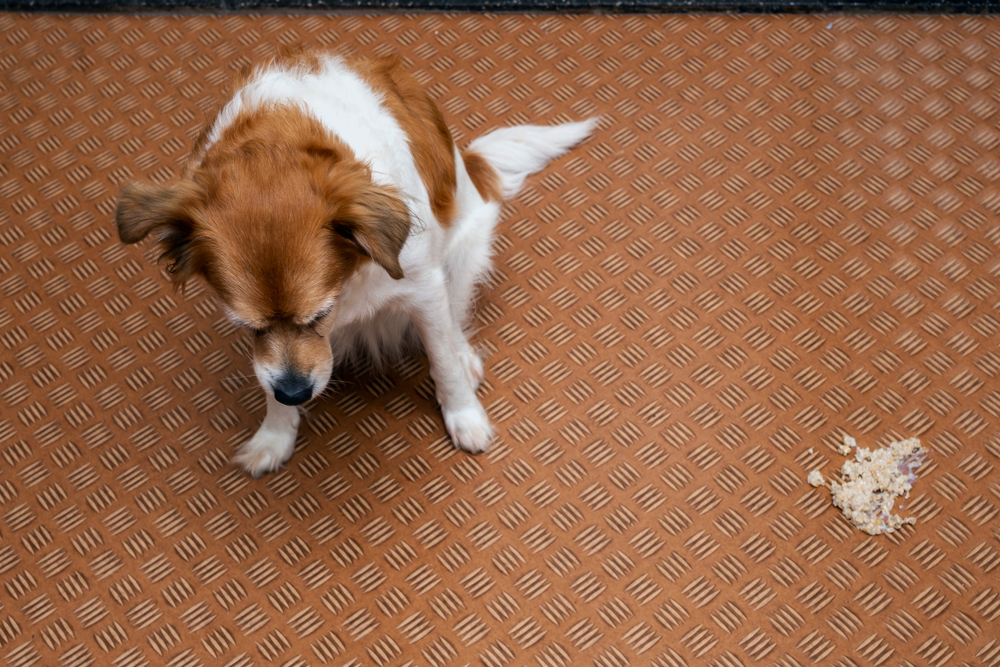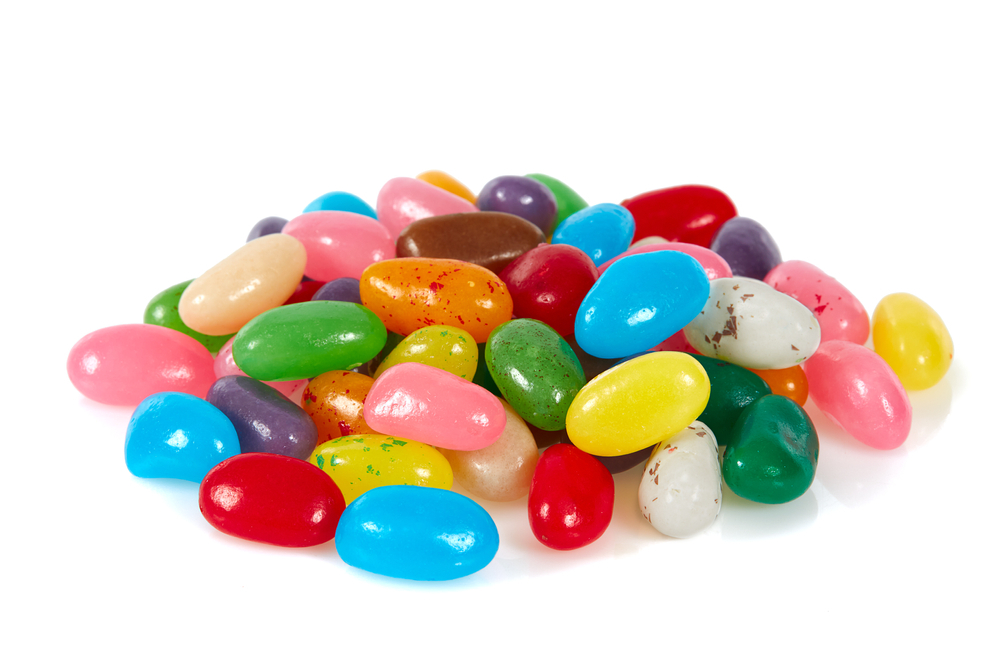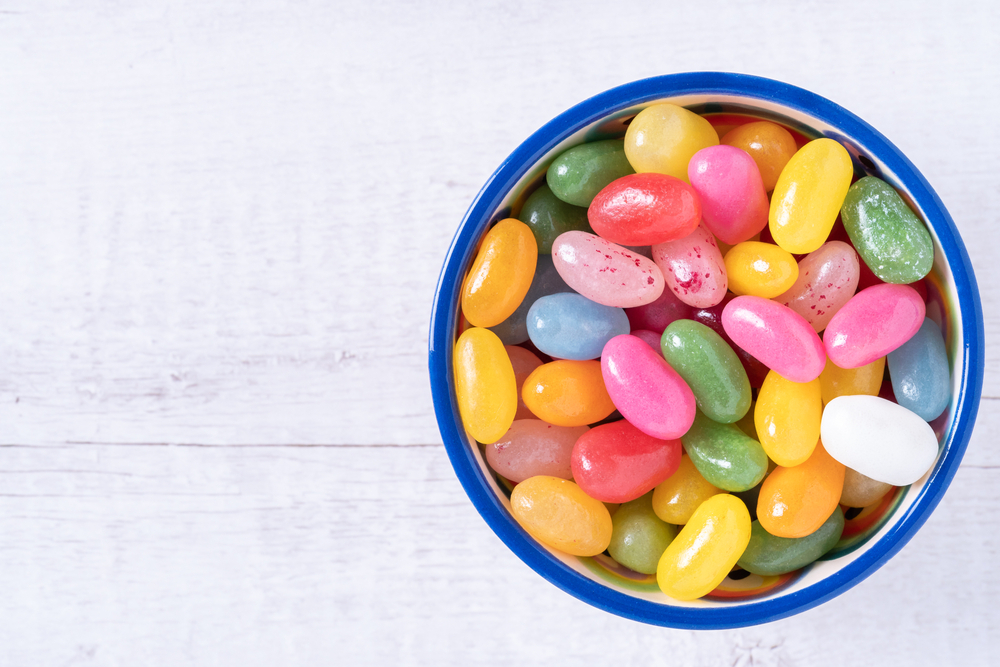If you have kids, I’m sure you’ve encountered your fair share of jelly beans. Maybe you’ve even eaten a handful or two (or more) in your lifetime. These colorful, small candies are practically a right of passage for childhood. But are they okay for you to share with your dog? What happens if your dog gets into your child’s jelly bean stash (or your stash—we won’t judge)?
Jelly beans are not something you should be sharing with your dog. Not only are they full of sugar and artificial flavorings, but they may contain potentially toxic ingredients like xylitol that could seriously harm or even kill your dog. Their size also makes them a choking hazard. Read on to learn more.

Can Dogs Eat Jelly Beans?
Dogs should not eat jelly beans, regardless of the brand or what’s contained in the ingredient list. These sugary treats are designed for humans and humans only.
Why Can’t Dogs Eat Jelly Beans?
1. Xylitol
Some jelly bean manufacturers may use the artificial sweetener xylitol in their recipes to make them sugar-free. Xylitol is highly toxic to dogs as it can cause their blood sugar levels to crash and even cause liver damage. Even a small amount could be risky, particularly for puppies and small breeds.
Signs of xylitol poisoning can come on quickly or be delayed, but in the case of canine ingestion, do not wait to seek veterinary care until signs have appeared. Your dog’s life could be at risk.
Signs of xylitol poisoning include:
- Vomiting
- Lethargy
- Confusion
- Collapse
- Seizures
- Unconsciousness

2. Caffeine Content
Some varieties of jelly beans may contain caffeine. For example, the “Sport Beans” from Jelly Belly contain 50 milligrams of caffeine per 28 gram package, equivalent to about half of an eight-ounce cup of coffee.
Caffeine is a stimulant that is excellent for keeping humans awake when we need a little boost to our day; however, our pets are much more susceptible to the adverse effects of it than we are. Ingestion of caffeine can raise your dog’s blood pressure and even cause cardiac arrhythmias. Large ingestions can be fatal, especially if no treatment is provided. However, the degree of toxicity will depend on how much your pup has eaten and their size and health.
Signs of caffeine ingestion in dogs include:
- Increase heart rate
- Jitteriness
- Restlessness
- Vomiting
- Diarrhea
- Excessive vocalization
- Excessive urination
- Tremors
- Seizures

3. Sugar Content
Like all candies, jelly beans contain sugar to amplify their sweet taste. Unfortunately, many dogs develop a sweet tooth, which can make keeping them away from candies like jelly beans difficult.
While sugar isn’t toxic to dogs, it isn’t healthy for them, either. In the short term it can cause an upset stomach, while eating too many sugary treats over an extended period can cause weight gain, obesity and contribute to the development of other health issues like diabetes.
4. Flavoring
One of the best things about jelly beans is the vast number of flavors they come in. Whether you like buttered popcorn, juicy pear, root beer, (yuck) toothpaste, or rotten eggs, there’s a flavor for you. The problem with all these options is that some of the flavorings used can be dangerous for dogs.
For example, the “Chocolate Pudding” Jelly Belly jelly beans are made with real chocolate and contain trace amounts of caffeine.

What Else Is in Jelly Beans?
Jelly bean recipes may vary from manufacturer to manufacturer, but the basic ingredients are generally the same and include tapioca or corn syrup, sugar, and starch or pectin. They also contain natural and artificial flavors and confectioner’s glaze. Some companies may use controversial food dyes that have been linked to hyperactivity in children and tumors.

What Do I Do if My Dog Ate a Jelly Bean?
If your pup has snuck one or two from your candy dish, it is unlikely they’ll experience any long-lasting health effects. However, you’ll want to read over the ingredient list to ensure there are no potentially toxic components in the jelly beans you’ve purchased.
Some manufacturers use the artificial sweetener xylitol in their jelly bean recipes to cut down on the sugar content. As mentioned above, xylitol can be deadly for dogs. If your brand does contain this artificial sweetener or any other potentially toxic ingredient, you should call your veterinary clinic as soon as possible for advice.

Final Thoughts
Jelly beans aren’t a food you should get into the habit of deliberately offering your dog due to its high sugar content. There are plenty more species-appropriate snacks you can feed your dog instead of jelly beans.
One or two jelly beans stolen from the candy dish are unlikely to do any lasting damage to your dog, especially if they don’t contain xylitol or caffeine. If your pup has eaten beans that contain toxic ingredients, call your veterinarian right away.
Featured Image Credit: fotorauschen, Shutterstock
